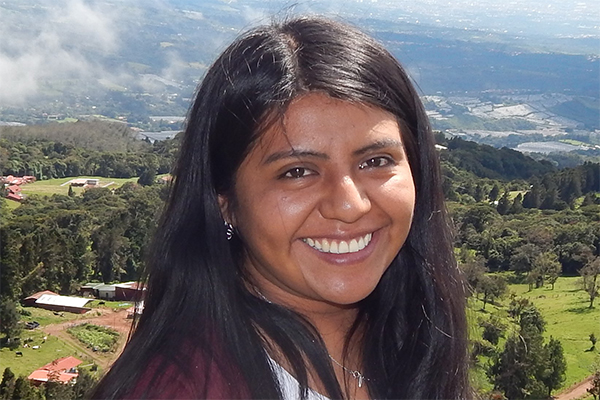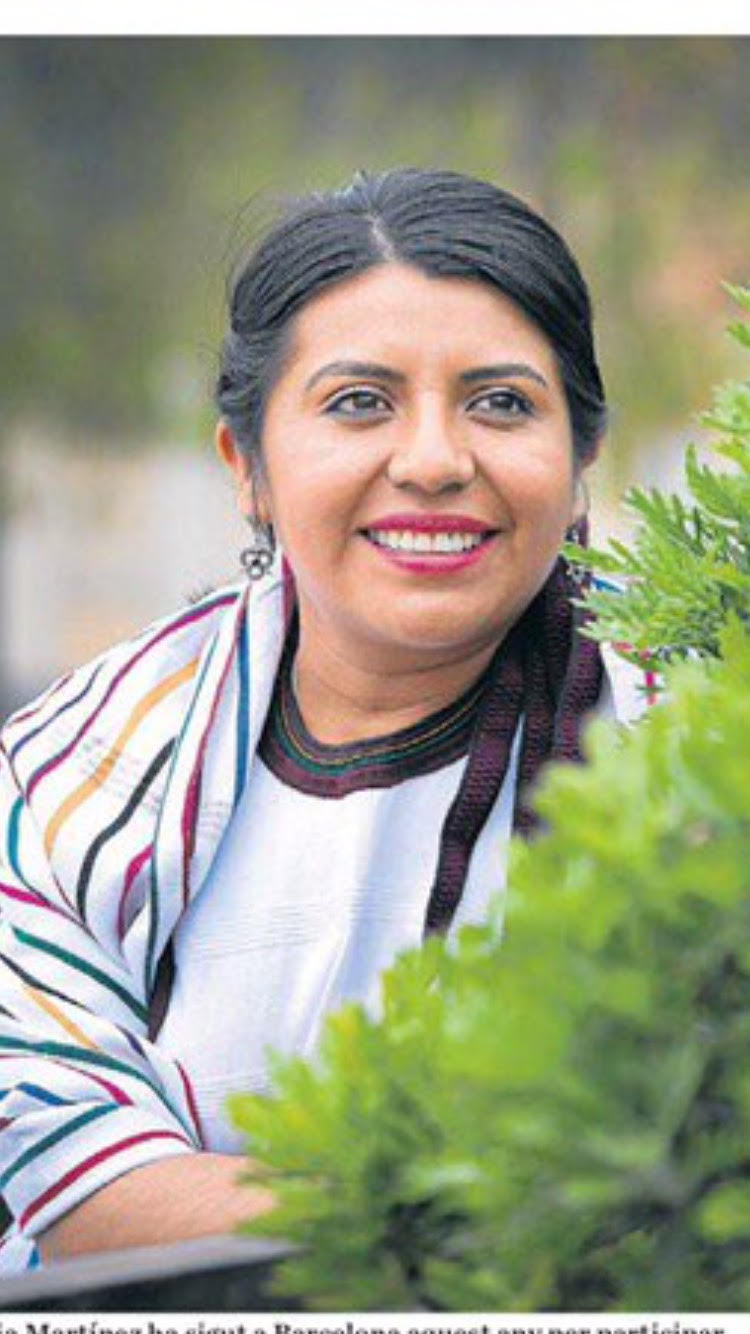Tania Martinez Cruz
Post-doctoral Research Fellow in Anthropology / Public Health / Development Studies
Why or how did you get into science?
I grew up in a rural community in Oaxaca, Mexico where creativity was probably driven by the resources, but also the limitations we had. My parents were indigenous teachers, which basically means they taught children to speak and read using both our native language Mixe and Spanish.

Like many other rural areas, the infrastructure and resources were limited, so I grew up seeing my parents maximise resources, for example electricity, building the classrooms, helping to take water to the classroom, among other things. My father and grandfather were two people that inspired me a lot, they were handy at fixing pipes to get water to the house, fixing electricity, fixing the roofs of the house or building the house with their own hands, making our furniture or any other thing we needed. Women were not normally allowed to use tools or join men for those tasks but luckily my father only had daughters and he always enjoyed me helping him and teaching me things. I loved trying to fix stuff that was broken, I did not always succeed and even made things worse, but I loved trying. As I grew older, I briefly lived in Mexico City and I realised that we were lacking basic services in my beloved mountains, so I knew I wanted to become an engineer to help my community access some of those basic services such as water, drainage, electricity, schools, among other things. I did not become a civil engineer but in the first years of my career I focused on topography to design sanitary infrastructure, water reuse in agriculture, water management and irrigation for biofuels production. Later, I started to work in international development, and I moved to social sciences because I realised that technology and knowledge need to always be adapted to local contexts; but first, we need to understand those local contexts.
Did anyone in particular influence you?
Yes, the creativity of my grandfather and my father. I liked how they could fix things so easily and I wanted to understand how things worked so I could do the same. To this day, my favourite gifts are tool kits or electronic devices.
What is your particular field and how did you choose it, or did it choose you?
I have a multidisciplinary background. In the first years of my career I was really focused on sanitary issues and wanted to be a sanitary engineer. However, after I finished my bachelors, I worked for some time in irrigation systems design and irrigation technology transfer and wanted to become more of an agronomist. My MSc focussed on crop modelling to find sweet sorghum varieties that yield good amounts of ethanol using the least amounts of water and can also be grown throughout the year. This was at the time of the boom in biofuels; we needed to use less water, less arable land and look at green energies. My research was fascinating, but I was already inspired to understand, based on my experience on irrigation technology transfer, why some farmers take up technologies or not and why not all the farmers benefitted from the technologies we developed as researchers. Thus, I joined an international NGO in 2012 and I worked on Information and Communication Technologies for Development. We assumed that information is power, and we aimed to empower Mexican farmers by providing them, through their mobile phones, with information they could act upon . We learned that there are no ‘silver bullets’, and that information is also controlled by specific groups. The project had huge potential, but many things needed to change within the Mexican context to enable it to succeed. Thus, to understand more deeply the factors driving how projects are designed, which technologies are promoted and how those technologies are, or are not implemented by farmers, I enrolled myself in a PhD in social sciences. As part of the process, I also questioned why indigenous knowledge is usually undermined, but also how we could create projects that could embrace modern and traditional knowledge and improve the lives of peoples while respecting their right to self-determination.
What advice would you give to other young women reading this who are thinking of pursuing a career in science?
Embrace your passion and creativity in the career you want to pursue, whether it is natural or social sciences, both are fascinating. These days it is becoming more common to have an interdisciplinary background and you could also consider it an option. To me everything must be about passion, so just embrace your passion and work hard for it. In the process you will find mentors and many opportunities you probably never imagined. For example, in my case, my passion for science, despite having changed my field so many times, has taken me to amazing places I never imagined as a girl from rural Mexico, but has also enabled me to make many friends, and feel that I am contributing to solving global challenges.
Is there anything you wish you had done differently in your career so far?
Sometimes when I think back, when I feel things are going a bit slowly, I think that maybe I should have stuck to my initial field. However, when I think of all the things that came along as part of the journey, I think I did things in the right way. If I could speak to a younger version of myself, I would say “fear less” and be more proactive when seeking for opportunities and knocking at doors. I feared sometimes to get a NO or rejection but that is part of the process. The NO is a given, but the YES is something we can win.
What does the significance of this, the International Day of Women and Girls in Science, day mean to you?
I am happy that we get a day to raise awareness on the role of Women and Girls in science. Besides my work as a researcher, I speak at conferences and support NGOs that work with girls and especially marginalised/indigenous women/girls because I think our potential is often undermined by the norms and rules surrounding us. We still live in a world with many inequalities, but if we want to change the world, we need to take our destiny in our hands. Education and science transformed my world, so I hope that the lives of other girls and women are transformed positively too and that they become the inspiration and change makers for others tomorrow.
NRI profile: https://www.nri.org/people/cruz-martinez-tania

